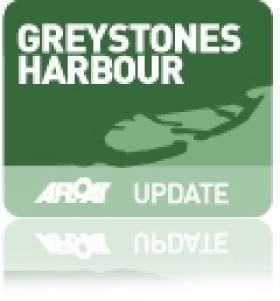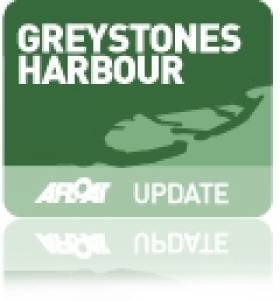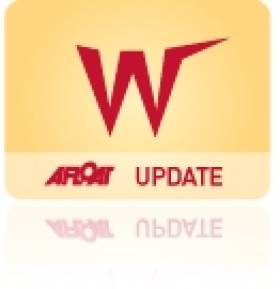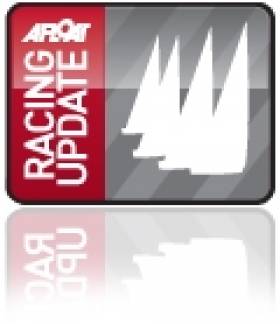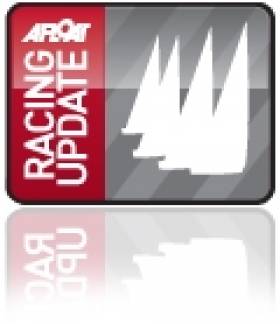Displaying items by tag: Greystones Sailing Club
Wicklow Councillors Call For Greystones Clubhouse Construction
#Greystones - Though further development of Greystones Harbour remains stalled for the time being, two local councillors hope progress can be made in building marine clubhouses to complement the town's successful new marina.
As the Wicklow Times reported recently, Cllr Tom Fortune says he welcomes the call by Wicklow County Council colleague Cllr Derek Mitchell to fast-track the construction of clubhouse facilities for the various bodies that use the harbour.
Citing his own five-year campaign "to ensure that the elements of this project that benefit the community be completed urgently", Cllr Fortune said that public pressure was necessary to avoid the undeveloped sections of the harbour being left "a wasteland for the foreseeable future".
Meanwhile, the same newspaper reports that Greystones Sailing Club is one of 31 sports bodies in Co Wicklow to receive funding under the Sports Capital Grants scheme for 2014.
GSC will receive €9,000 out of the total €1 million funding awarded to the county, the biggest share of which is the €150,000 granted to Wicklow-based Triathlon Ireland.
Greystones Harbour Hosts Unique Multi Club Sailing Regatta
#greystonesharbour – Greystones Sailing Club will be hosting their second Annual Cruiser Regatta this Sunday morning starting at 10am. Over 70 boats from up and down the East Coast will participate and lunch and prize-giving will take place after racing, at approximately 2.30pm.
As Afloat previously reported, entries have already been received from eight clubs including Wicklow, Arklow, Bray, Poolbeg, Clontarf, Dun Laoghaire, Howth and Malahide making this a unique, multi club event in Ireland. At least five of the clubs are holding feeder races on Saturday from their clubs to Greystones, so the sea around Greystones will be buzzing with sailing boats all weekend.
Daragh Cafferky from Greystones Sailing Club said that "this will be the third largest sailing regatta in Ireland this year, in what is only our second year to run this annual event. We will have all kinds and sizes of sailing boats from 17 feet to over 50 feet, coming to Greystones and using our great facilities and town over the weekend. We believe that this race will bring over 400 sailors into Greystones over the next few days."
"From a sailing point of view, this race is unique - there is no other event that has such a large representation from so many East Coast Clubs and we in Greystones Sailing Club are delighted to be able to host this great event in our town. There will be also be a display from the RNLI helicopter on Sunday at approximately 2.30pm and the Wicklow lifeboat will be present (provided there is no emergency callout)," he added.
The boats and crews will be hosted by Greystones Sailing Club and will avail of berths in Greystones Marina for the weekend.
Wicklow Wayfarer Dinghy Nationals Scrubbed
#wayfarer – As one dinghy class, the RS 400s, can boast about record turnouts this season another class has been forced to scrub its Irish nationals, due to lack of interest. Such is the ebb and flow in the Irish dinghy and one design scene.
The Wayfarers have cancelled their national championships at Greystones, in Wicklow because there were only 10 boats intending to enter; four from East Down YC, two from Greystones (host club) and four others. The weekend didn't suit many people, but was arranged as five Irish boats will be travelling to the Wayfarer Worlds in Canada in August. A venue where Irish crews have previous success.
Sadly, the 16-foot class, favoured by many sailing schools as a stable platform for beginners, looks to be in decline in Ireland and is now sailed only in a handful of clubs. East Down is the only club that would have more than 7 or 8 boats out regularly,and this club is not affiliated to the Irish Sailing Association (ISA) so any boats sailing in the nationals from EDYC were counted as 'non-Irish' resulting in a smaller number of boats being recognised as Irish in the nationals. This meant up to half of the fleet could be designated as 'non Irish boats' at any nationals, one Wayfarer sailor told Afloat.ie
It is disappointing as the boat provides good close racing and the interior was completely redesigned by Phil Morrison (designer of the RS 200 and 400), that works well from a racing perspective.
Whether or not it is better to hold a small championships or none at all is something smaller fleets are having to consider in recession.
We'd like your view? Comments in the box below or email [email protected]
Both competitors and organisers were not very optimistic on Friday evening with an ominous forecast on the Windguru web site of gusts up to a maximum of "5 knots". Thankfully even the Internet can get it wrong sometimes and everyone was pleasantly surprised when they were greeted with a steady 12 to 15 knots Southerly outside Greystones Harbour. The blue sky and sunshine providing the welcome bonus of an early sea-breeze.
With a strong tide which apparently runs South for ten hours of every twelve hour tidal cycle, judging lay-lines both up and down wind on the windward leeward courses was tricky to say the least. Though it was fair to say all crews were happy to have the tidal push for the up wind beats as it was full hiking conditions for all of day's four lap races.
In the 400 fleet Liam Donnelly took race one of the day. Greystones SC Commodore Simon Herriott suffered a breakage in race one but recovered in style to win the next two races.
In the 200 fleet Roy Van Maanen posted a perfect score card winning all three races of the day.
On day two a short postponement was followed by two light air races. Finding some pressure and managing to stay in it was the priority. This led to some dramatic place changes particularly on the down wind legs, were calling a gybe at the correct time was the difference between getting to the bottom mark in first or last place.
The sea-breeze kicked in just in time to provide plenty of excitement for the final race of the series. Amongst the 400 fleet there were four boats with the potential to take the event going into the last race. In the end Liam Donnelly and his crew, Andrew Vaughan from the Royal North prevailed in the stronger breeze taking the 400 Southerns trophy North.
In the 200's Roy Van Maanen had the luxury of discarding a 2nd to win the event comfortably. The battle for second was a little tighter with Graeme Noonan taking second place on count back from Sean Clery.
RS400 Results:
1st Liam Donnelly
2nd Simon Herriott
3rd Michael McAllister
RS200 Results:
1st Roy Van Maanen
2nd Graeme Noonan
3rd Sean Clery
Next up for the Irish RS fleet is Newcastle Co.Down. Check out www.irishrs.com for more information or to arrange test sail in an RS200 or RS400.
Greystones Sailors Lead RS400s in Cushendall
There were 23 high performance boats starting today's races – 16 in the RS 400 class and seven RS 200s. Of the fleet, large numbers travelled from Greystones (Co Wicklow) and Royal North (Cultra), with boats also coming from the National Yacht Club (Dún Laoghaire), Strangford Lough and Ballyholme. Six local Cushendall boats also started.
The fast, light-weight sailing dinghies have a crew of two.


























